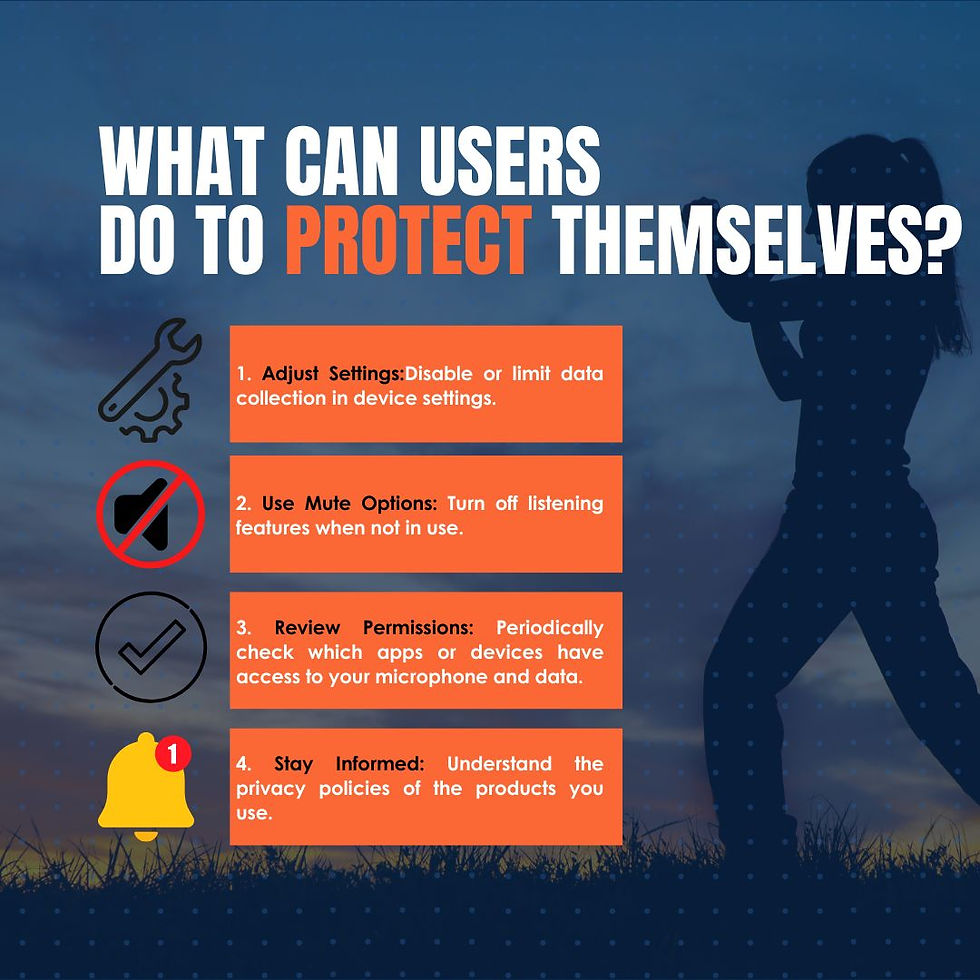Listening Devices: Convenience at the Cost of Privacy?
- BixBe Tech
- Jan 17, 2025
- 1 min read
In the age of smart technology, listening devices have become an integral part of our daily lives. From voice assistants like Siri, Alexa, and Google Assistant to smart TVs and mobile apps, these tools offer unparalleled convenience. But with great innovation comes an even greater question: how much of our privacy are we trading for convenience?
How Do Listening Devices Work?
Most listening devices operate in "standby mode," constantly waiting for a trigger word, such as "Hey Siri" or "Alexa." Once activated, they record and process your voice commands to perform tasks or provide information. To improve accuracy and user experience, companies often store these interactions, raising significant privacy concerns.
The Apple Siri Settlement: What Happened?
In 2019, reports emerged that Siri sometimes activated accidentally, recording private conversations without user consent. These recordings were occasionally reviewed by human contractors to improve Siri’s performance. However, the lack of explicit disclosure in Apple's privacy policy led to lawsuits alleging privacy violations.
Apple recently agreed to pay $95 million to settle these claims. While the company denies wrongdoing, this case underscores the challenges of balancing innovation with user privacy.
The Way Forward
The Apple Siri settlement serves as a reminder that listening devices must strike a balance between innovation and ethical data practices. While companies have a responsibility to protect user privacy, consumers must also stay vigilant.
Listening devices are here to stay, but the future of this technology depends on how we address privacy concerns today. Transparency, accountability, and user education are key to ensuring these tools serve us without compromising our trust.









Comments